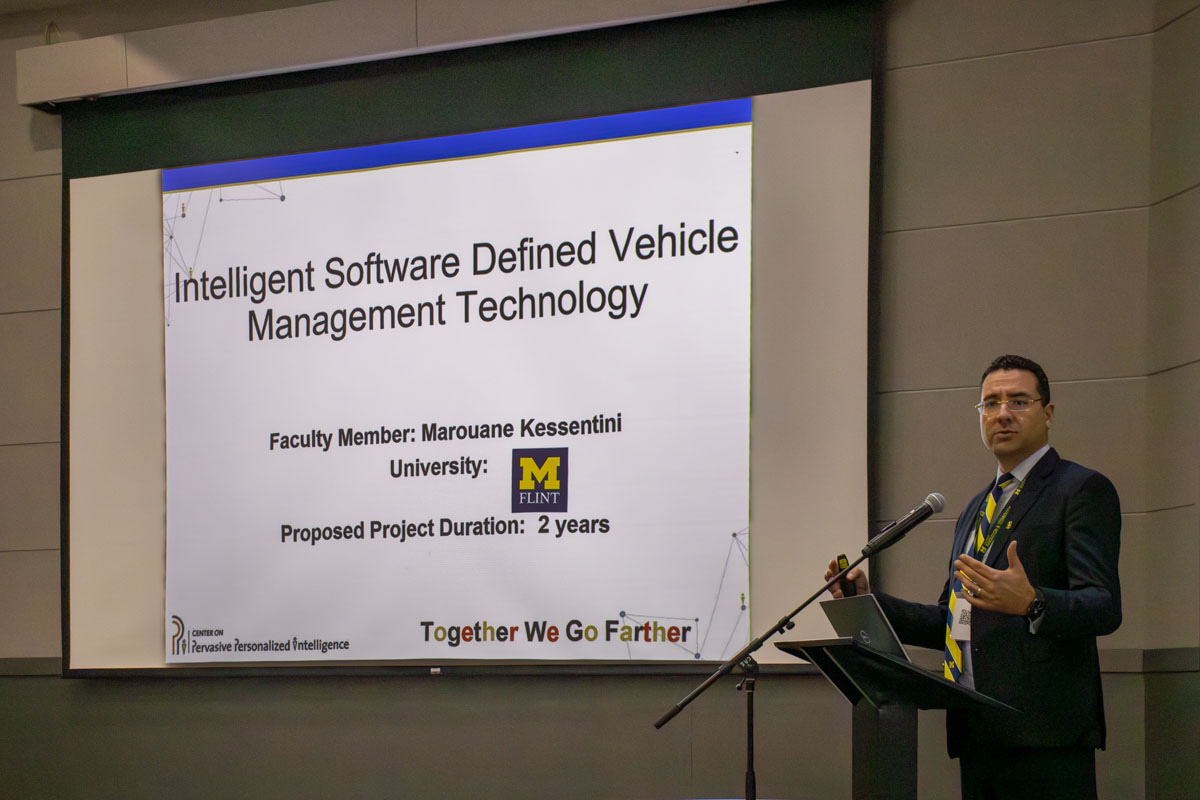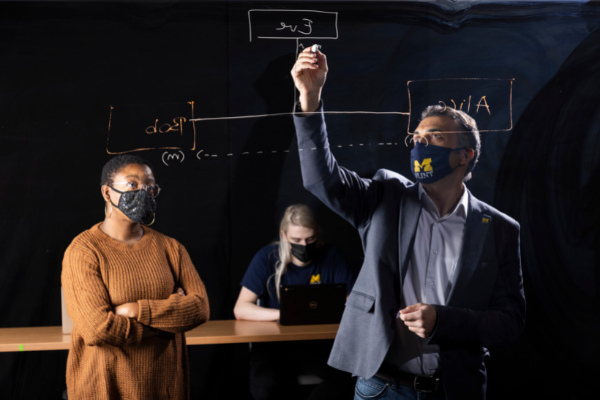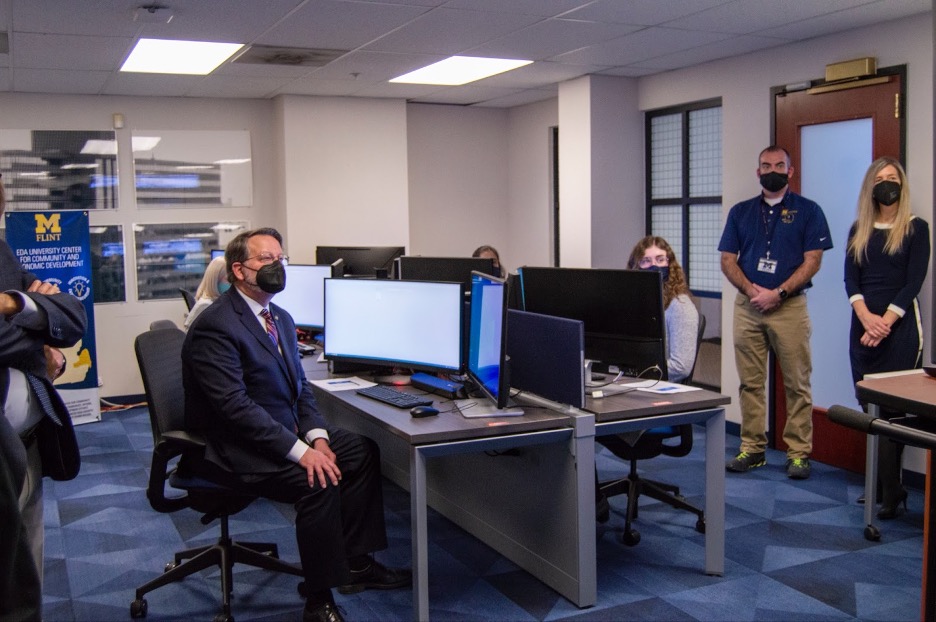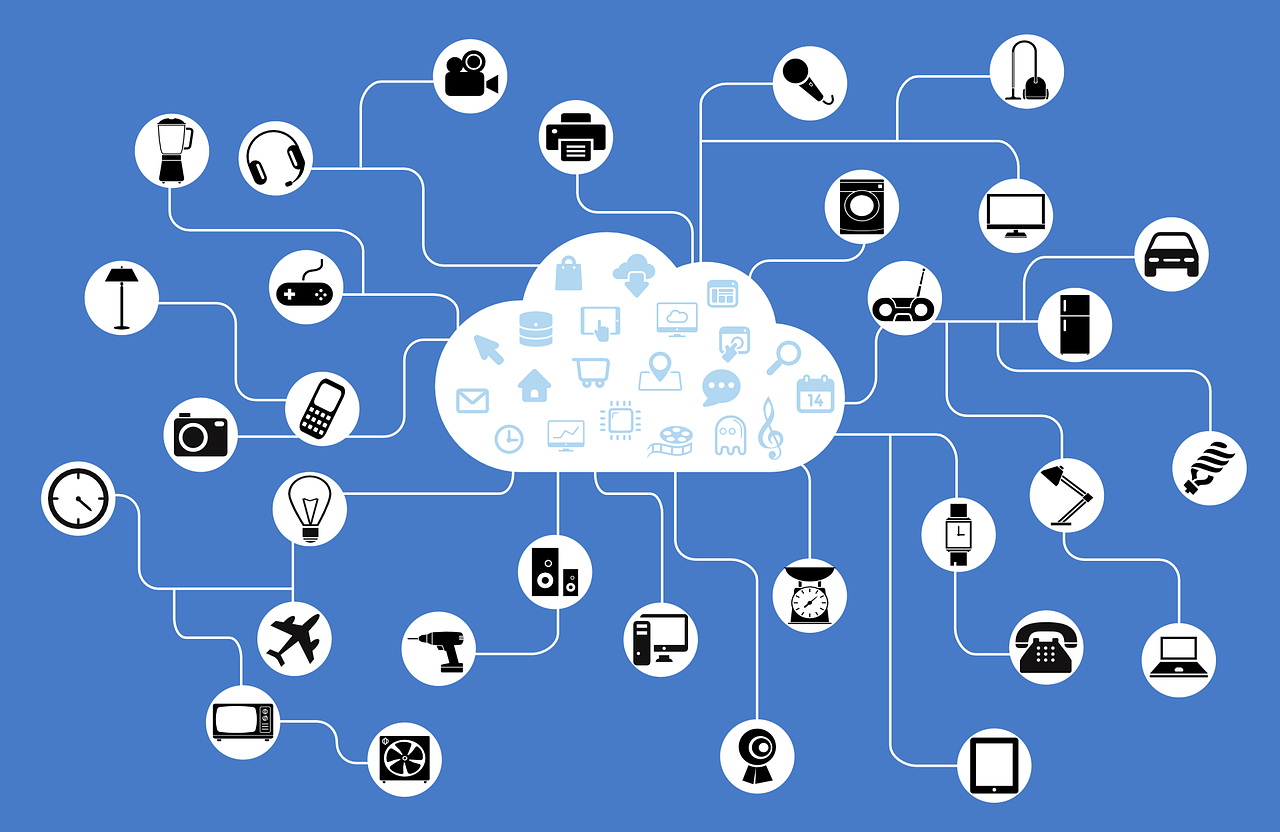Tag Archives: cybersecurity
UM-Flint partners with NetSTAR to enhance internet safety through advanced AI techniques
The University of Michigan-Flint has announced a groundbreaking partnership with NetSTAR, a global leader in web filtering and internet security solutions. The collaboration aims to develop advanced artificial intelligence technologies to enhance internet safety, particularly for vulnerable populations like children and the elderly. The project will also spur productivity by blocking access to harmful content,[…]
UM-Flint hosts industry, researchers for Pervasive Personalized Intelligence conference
Customers are increasingly expecting companies to be able to anticipate and meet their needs and expectations automatically, without prompting or effort on their part. Brands are spending hundreds of billions of dollars to understand and meet those needs seamlessly with the help of emerging technology such as the Internet of Things. To help bridge the[…]
UM-Flint offering new graduate programs in data science and cybersecurity
The University of Michigan-Flint has added two new graduate programs to their College of Innovation and Technology– Data Science and Cybersecurity. Both students with computer science backgrounds and those without are welcome to apply and learn!
Careers with a Cybersecurity Degree | University of Michigan-Flint
What Can You Do with a Cybersecurity Degree? Pursuing a degree in cybersecurity can lead you to a booming field where job opportunities abound. In the United States, there are almost 600,000 unfilled cybersecurity positions, and the supply of qualified workers is far behind the demand. That means, with a cybersecurity degree, you have a[…]
Cybersecurity vs. IT Degree | University of Michigan-Flint
Cybersecurity vs. Information Technology Degree: Which One Is Right for You? Do you know that in 2022, global spending on information technology is expected to exceed $4 trillion? Organizations will keep investing in enterprise software, data centers, and IT services to improve profitability, security, and efficiency. Meanwhile, the demand for qualified IT professionals is also[…]
U.S. Senator Gary Peters highlights cybersecurity at UM-Flint
On February 14, U.S. Senator Gary Peters, Chairman of the Homeland Security and Governmental Affairs Committee, visited the Cybersecurity Training Center (CTC) at UM-Flint in his tour of cyber hubs in Michigan. The visit included a roundtable discussion regarding cybersecurity and workforce development, a cybersecurity training demonstration, and a presentation to highlight the importance of[…]
Reaching the breaking point: UM-Flint professor on Internet-of-Things security
Even if you haven't heard the term before, you're probably familiar with the "Internet of Things." It refers to the increasing number of everyday objects that are connected to the web–fitness trackers, doorbells, washing machines, even your vehicle. The connected nature of these items can create significant convenience for consumers, sending you real-time updates when[…]






